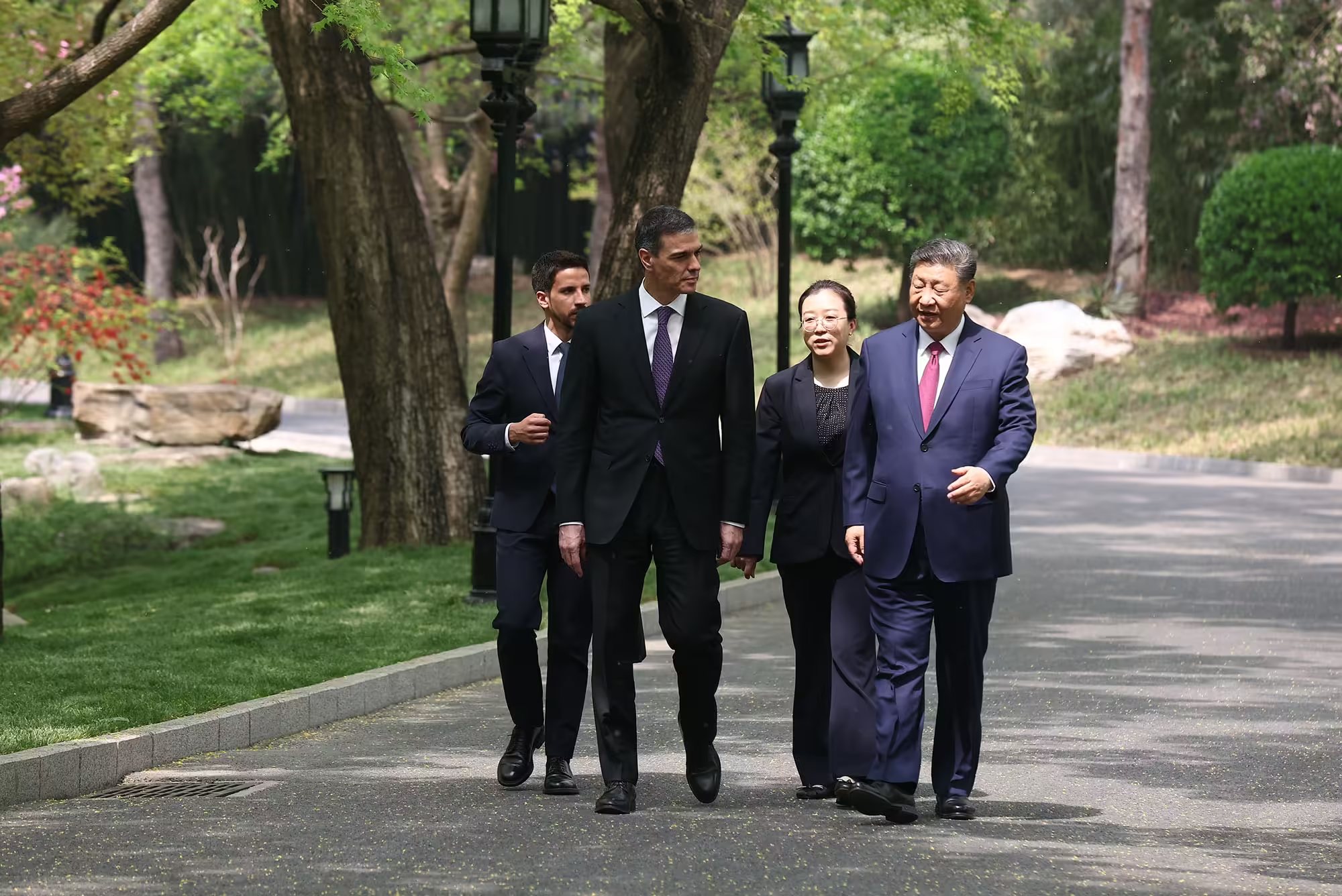Spain Focuses on Trade Deals in China Amid Global Tariff War
Recently, global trade has shifted as ongoing tariff tensions between major economies have impacted markets around the world. As part of these tensions, President Donald Trump recently announced a 90-day pause on tariffs for most countries, which sparked a temporary boost in global stock markets. However, China was not included in this pause, and the U.S. raised tariffs on Chinese goods to a staggering 145%. In retaliation, China has imposed its own tariffs on American imports, reaching 125%. These moves have caused significant disruption in financial markets, leading to concerns about a full-scale trade war.
Against this backdrop, Spanish Prime Minister Pedro Sánchez has been working hard to strengthen Spain’s position in the global economy. During his recent trip to China, Sánchez focused on deepening the trade and diplomatic relationship between Spain and China, especially as Europe faces growing tensions with the U.S.
Prime Minister’s Message: Spain’s Commitment to China and the EU
Prime Minister Pedro Sánchez made it clear that Spain sees China as an important partner, not just bilaterally, but within the European Union. During his meetings with Chinese leaders, he highlighted the strong ties between Spain and China and stressed that Spain will continue to promote balanced and fair economic relations.
‘Spain is a deeply European country and views China as a key partner within the EU,’ Sánchez said in his remarks to President Xi Jinping. ‘We are committed to supporting strong and reciprocal relations.
This visit was particularly significant, as it marks the 20th anniversary of the strategic partnership between Spain and China. Sánchez pointed out that this partnership has been growing over the years, with both sides now taking steps to take it to the next level.
New Deals to Boost Trade and Exports
One of the key focuses of Sánchez’s visit was to secure new agreements that would help boost trade between Spain and China. During the visit, Spain and China signed seven agreements, covering a wide range of sectors, including agriculture, science, education, and culture. These deals are seen as a way to strengthen Spain’s economic presence in China and improve the overall trade balance.
Spain has long been a major exporter of agricultural products, particularly pork and cherries, to China. One of the most notable agreements allows for the export of additional pork products to China, which is Spain’s biggest agricultural export to the country. In 2024, Spain exported around 571 million euros worth of pork to China. The new agreement will also allow for the export of Spanish cherries, which will now be included on the list of approved products for the first time.
“These agreements are a great opportunity to expand our exports to the Chinese market, particularly in areas where Spanish products are already in high demand,” Sánchez said.
The expansion of these exports is expected to bring significant economic benefits to Spain, particularly for its agriculture and food industries.
Expanding Cooperation in Healthcare and Cosmetics
Along with agricultural deals, another important agreement focuses on the healthcare and cosmetics sectors. Spain and China have agreed to establish a new working group to improve the access of Spanish medical products, medicines, and cosmetics to the Chinese market. This is a crucial development, as Spanish companies have faced challenges when trying to sell their products in China. The new agreement is seen as a way to create a more balanced and reciprocal trade relationship in these sectors.
“Two years ago, during my first visit to Beijing, Spanish companies in the healthcare sector expressed their concerns about the difficulties they were facing in China,” Sánchez recalled. “I’m pleased that after months of hard work, we are now addressing those issues and creating a better environment for Spanish businesses.”
Boosting Investment in Spain
Sánchez also held discussions with Chinese companies that are already investing in Spain or are interested in doing so. This is part of his broader strategy to attract high-value investments into Spain, particularly in sectors such as renewable energy, automotive, and battery technology. These industries are seen as critical to Spain’s future economic growth, and Sánchez is keen to position Spain as a hub for innovation and sustainable development.
During his visit, Sánchez met with representatives from companies involved in the automotive and renewable energy sectors. He encouraged them to invest not only in Spain but to consider it as a base for expanding into other European and global markets.
“We want investments that will create high-quality jobs and generate value in Spain, helping to boost the competitiveness of both our countries,” Sánchez said.
A Positive Outlook for Spain-China Relations
As Sánchez wrapped up his trip to China, he expressed confidence that his visit had achieved its goals of strengthening Spain’s position in Asia.
“Asia is becoming increasingly important in today’s world, and our relationships with countries like China and Vietnam are vital for Spain’s future,” he noted.
The agreements signed during the visit, combined with the positive discussions with Chinese businesses, suggest that Spain and China are on the path to a stronger, more collaborative future. Sánchez concluded his trip by highlighting that the world is facing a time of change and uncertainty, and it is more important than ever to strengthen relationships with global partners.
“With this visit to China and Vietnam, we’ve taken a significant step toward reinforcing Spain’s presence in Asia and enhancing our global partnerships,” Sánchez said.
While Sánchez’s visit to China has resulted in new trade deals and stronger ties, some concerns still exist. Critics worry that these agreements could be overshadowed by ongoing global trade tensions, especially with China’s trade practices and the wider impact of tariffs. Some people question whether these deals will really help balance Spain’s trade or if they might bring Spain closer to China at a time of international uncertainty. As the global economy faces these challenges, it’s important to think about how these deals could affect Spain in the long term. What do you think? Will these new trade deals benefit Spain, or could they lead to problems later on?
Share this content:




1 comment